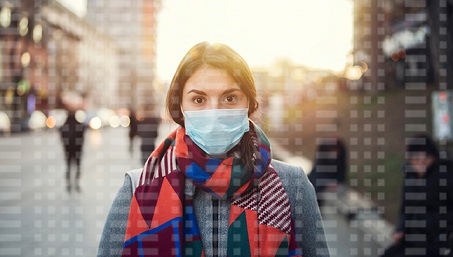 The current crisis is a far cry from the Great Recession but there are things we have learned that are applicable when trying to figure out how to protect brands, businesses and livelihoods. In this post I have listed a few things that brands should do during the crisis and which will help preserve the brand’s standing for the longer-term.
The current crisis is a far cry from the Great Recession but there are things we have learned that are applicable when trying to figure out how to protect brands, businesses and livelihoods. In this post I have listed a few things that brands should do during the crisis and which will help preserve the brand’s standing for the longer-term.
Tactically, decisions will need to be made on a brand-by-brand basis. There are some brands that will have little option but to curtail expenditures and batten down the hatches and hope they can ride out the storm: airlines, casual dining, department stores and more. Survival will depend as much on debt load as brand equity, but once things start to return to normal, we can expect the stronger brands to bounce back faster, particularly if weaker companies did not make it.
However, there will be many categories that are relatively unaffected. For instance, I read that in the U.S. the market for pet food supplies is relatively resistant to economic downturns because people would rather save money on things for themselves than for their pets. However, companies operating in that category are undoubtedly gearing up for an increase in online sales as people self-isolate.
If your brand is one of the relatively unaffected categories, the question becomes how should we respond to the crisis? I believe that companies which are seen to put the needs of people first and their bottom line second may take a short-term financial hit but will likely come out stronger when normalcy returns. With that in mind, here are some things that might prove helpful.
If you can do something purposeful and beneficial, do so. For example, French luxury conglomerate LVMH is converting production lines to make hand sanitiser. Actions speak louder than words, particularly when they are done in the public good and, while not the primary consideration, are likely to receive considerable press and social media coverage.
If you can alleviate the financial impact on people impacted by the virus or shut downs, do so. Many automotive companies in the U.S. have suggested they will provide payment relief to customers affected by the crisis. However, to keep sales ticking over we might also see more initiatives like Hyundai’s “Assurance” program which it launched in 2009. This allowed new-vehicle buyers or those who had leased one to return their cars for up to a year after purchase if they lost their income due to job loss.
If you can alleviate people’s concerns, do so and communicate what you are doing. My local Subaru dealer has just emailed offering a new pick-up and delivery program for when your car needs servicing. In addition, the mail details the extra steps they are taking to protect customers and their own employees. However, make sure you have something worthwhile to say, and avoid being seen as communicating for the sake of it. Check that your messaging is going to be received as intended and not considered inappropriate or irrelevant.
Self-isolated at home, people are likely to consume more TV, online, radio, and podcasts. As people will be looking to those channels for information, advice, reassurance advertisers will need to consider how their message will work in that context. To that end, do not exacerbate concerns or show behaviour that is contrary to local health authority advice on social distancing. Geico, KFC and Hershey have all suspended ads which showed undue physical contact and Axe suspended an ad where the character imagined his smelly underarms caused a crowd in a basketball arena to flee in fear. At a time when people are more sensitized than normal it makes more sense than ever to check the likely response to content before it is widely seen.
Last, but not least, do not do anything which might be construed as taking advantage of the crisis. Yes, you need to generate cash, but if your brand is seen to being doing so at people’s expense their negative memories will long outlast the crisis.
Written by Nigel Hollis, Executive Vice President and Chief Global Analyst at Kantar’s Insights Division.


